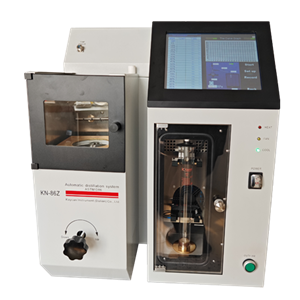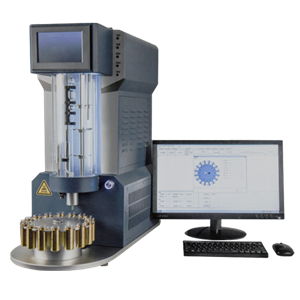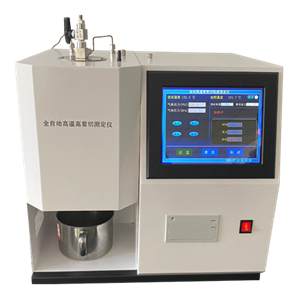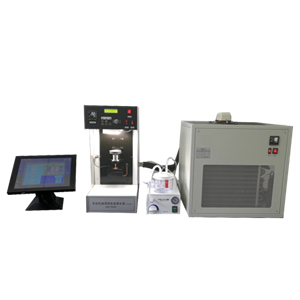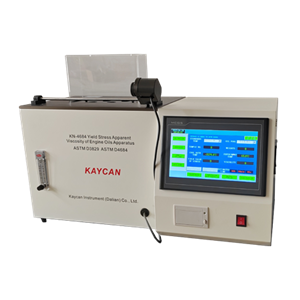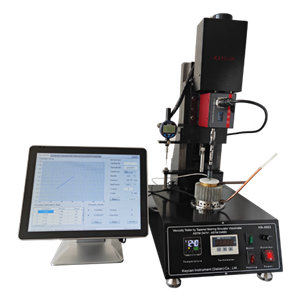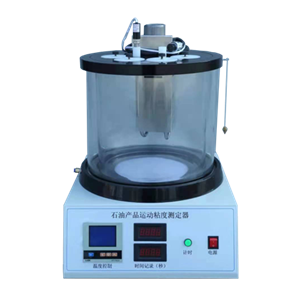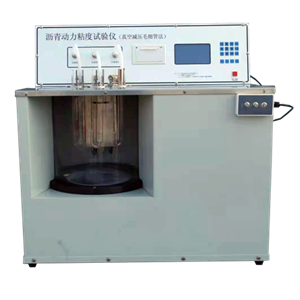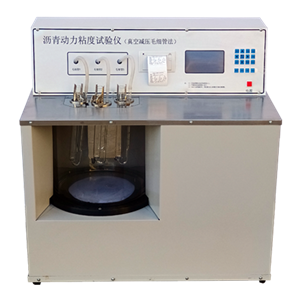-
ASTM D5293 Apparent Viscosity By Cold Cranking Simulator CCS
The CCS apparent viscosity of automotive engine oils correlates with low temperature engine cranking. CCS apparent viscosity is not suitable for predicting low temperature flow to the engine oil pump and oil distribution system. Engine cranking data were measured by the Coordinating Research CouncilThe measurement of the cranking viscosity of base stocks is typically done to determine their suitability for use in engine oil formulations. A significant number of the calibration oils for this met
Send Email Details -
ASTM D5293 Automatic Apparent Viscosity By Cold Cranking Simulator CCS
The CCS apparent viscosity of automotive engine oils correlates with low temperature engine cranking. CCS apparent viscosity is not suitable for predicting low temperature flow to the engine oil pump and oil distribution system. Engine cranking data were measured by the Coordinating Research CouncilThe measurement of the cranking viscosity of base stocks is typically done to determine their suitability for use in engine oil formulations. A significant number of the calibration oils for this met
Send Email Details -
ASTM D4684 Yield Stress And Apparent Viscosity Of Engine Oils
An engine oil sample is held at 80°C and then cooled at a programmed cooling rate to a final test temperature and held for a specified time period. At the end of this period, a series of increasing low torques are applied to the rotor shaft until rotation occurs to determine the yield stress, if any is exhibited. A higher torque is then applied to determine the apparent viscosity of the sample.
Send Email Details -
ASTM D5481 Apparent Viscosity At High Temperature And High Shear Rate By Multicell Capillary Viscometer HTHS
High-Temperature and High-Shear Rate Apparent Viscosity Tester (HTHS) covers the laboratory determination of high-temperature high-shear (HTHS) viscosity of engine oil at a temperature of 150℃ using a multicell capillary viscometer containing pressure, temperature, and timing instrumentation. The shear rate for this test method corresponds to an apparent shear rate at the wall of 1.4 million reciprocal seconds (1.4 3 106s-1).This shear rate has been found to decrease the discrepancy between this
Send Email Details -
Hot
ASTM D4683 Viscosity At High Temperature And High Shear Rate By Tapered Plug Viscometer
KN-4683 Apparatus for Viscosity by TBS conforms to ASTM D4683 Standard Test Method for Measuring Viscosity of New and Used Engine Oils at High Shear Rate and High Temperature by Tapered Bearing Simulator Viscometer at 150 °C and ASTM D4741 Standard Test Method for Measuring Viscosity at High Temperature and High Shear Rate by Tapered-Plug Viscometer. The ASTM D4683 covers the laboratory determination of the viscosity of engine oils at 150℃ and 1.0·106s-1 using a viscometer having a slightly tape
Send Email Details -
ASTM D2170 Viscosity Of Asphalts By Vacuum Capillary Viscometer
the kinematic viscosity characterizes flow behavior. the method is used to determine the consistency of bitumen as one element in establishing the uniformity of shipments or sources of supply. the specifications are usually at temperature of 60 and 135℃.
Send Email Details -
-
ASTM D2171 Apparatus for Viscosity of Asphalts
KN-2171 Apparatus for Viscosity of Asphalts conforms to ASTM D2171 Standard Test Method for Viscosity of Asphalts by Vacuum Capillary Viscometer. The viscosity at 60℃ characterizes flow behavior and may be used for specification requirements for cutbacks and asphalt binders. This time is measured for a fixed volume of the liquid to be drawn up through a capillary tube by means of vacuum, under closely controlled conditions of vacuum and temperature. The viscosity in Pascal-seconds is calculated by multiplying the flow time in seconds by the viscometer calibration factor.
Send Email Details

